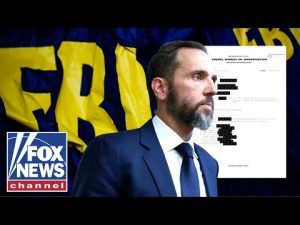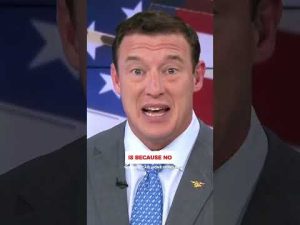In a puzzling twist of events, the Department of Justice (DOJ) finds itself wading through a legal quagmire unlike anything seen before. The situation stems from a scandal involving pardons that may have been handed out inappropriately, prompting calls for a thorough investigation. This curious case raises a unique question: what happens when individuals who have accepted these controversial pardons are called in for questioning? After all, the Fifth Amendment allows a person to remain silent to avoid self-incrimination, but it appears that by accepting a pardon, this right might take a backseat.
Imagine being on the hot seat, facing tough questions from investigators, but now adding a twist—a pardon in your pocket. Accepted pardons mean these individuals may not be able to plead the Fifth as they would normally. The waters get murky, as those questioned could inadvertently expose themselves to further incrimination. If they spill the beans about their involvement in securing these problematic pardons, the legal ramifications could be significant. This scenario is unprecedented, and it’s hard not to see the irony of courtrooms potentially grappling with something no administration has ever had the audacity to do before.
Adding to the intrigue, concerns have been raised about President Biden’s own health and stability. The president’s doctor has been referred for review due to the alarming oversight of not flagging potential issues during assessments. An absence of cognitive testing raises eyebrows, especially since such measures could invoke the 25th Amendment. A reasonable observer might question if the powers that be in the White House knew something was amiss, opting to keep things under wraps to maintain the status quo. After all, bad news can make for messy politics.
There’s a hint of comedy in the seriousness of this situation—one might liken it to a game of hot potato, except instead of a potato, it’s a legal nightmare that no one wants to hold onto for too long. If these pardons turn out to have dubious origins, not only could it open a floodgate of questions for the individuals involved, but it might increase the scrutiny aimed at the current administration. The implications for governance, legality, and political currency could be monumental.
As the dust begins to settle, it’s clear that the DOJ’s response to this conundrum will have repercussions that resonate beyond the courtroom. An investigation here doesn’t just reflect the intricate dance of justice; it has the potential to shake up the very foundations of political practices moving forward. For now, Americans watch and wait with bated breath as this unresolved mystery unravels, hoping to see accountability and clarity amidst the chaos.







